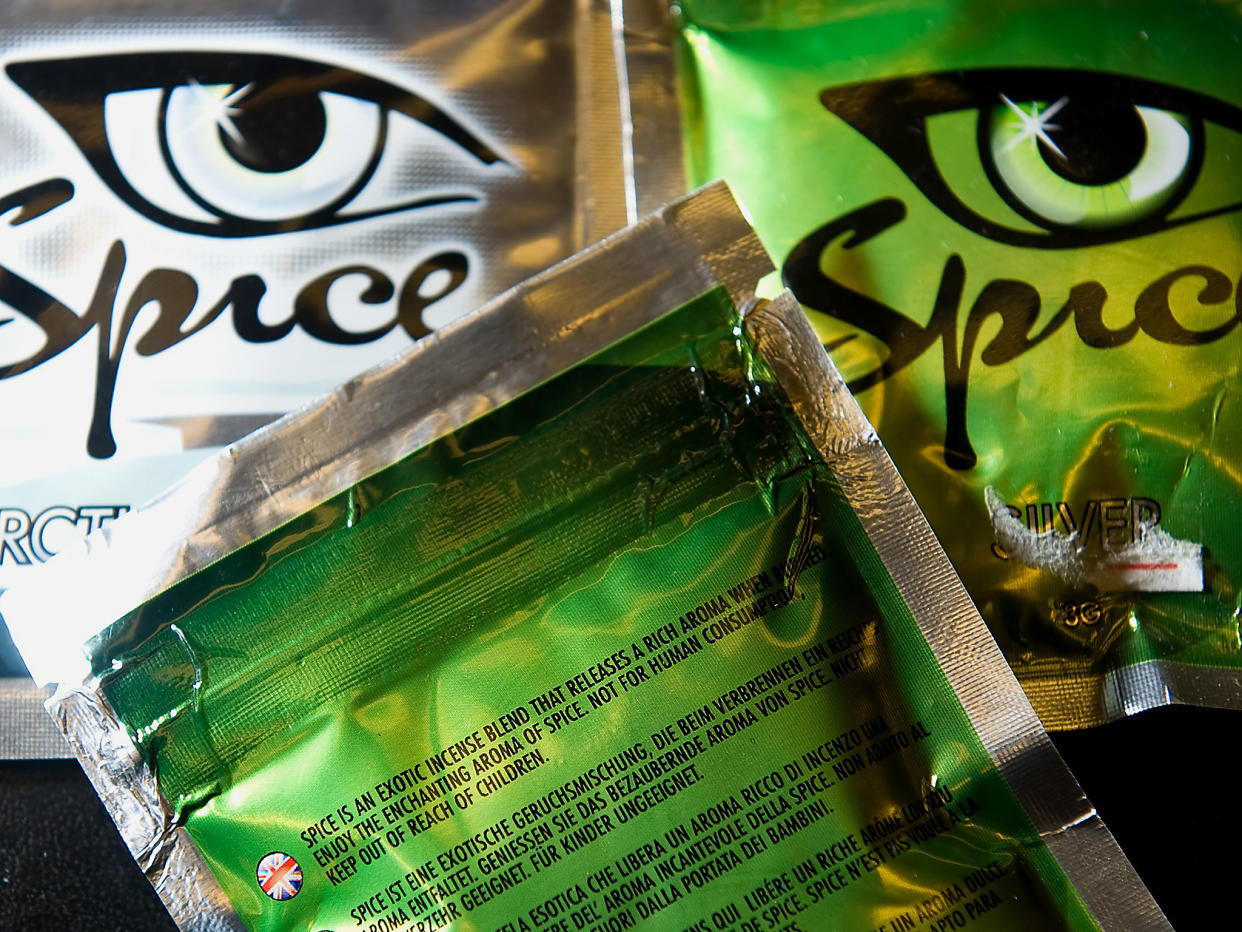Criminals deliberately get arrested so they can sell drugs to prison inmates, warns police expert

Criminals are deliberately getting themselves arrested so they can sell drugs to prison inmates, a police expert has warned his fellow officers.
With drugs like spice thought to be selling for many times their street value in prison, it is feared that some repeat offenders now see a short jail sentence as the chance to make a tidy profit.
As a result, rank-and-file police officers are now being urged to “be on the lookout for offenders who are desperate to get locked up”.
The warning was issued by Detective Constable Jamie Thompson, a Cheshire Police drugs expert, who said offenders released early from prison on licence are now hiding drugs inside their bodies, then committing minor offences to get themselves rearrested and returned to jail.
He told the National Custody Seminar organised by the Police Federation, the body representing rank-and-file officers: “Be on the lookout for offenders who are out on licence and seemingly desperate to get locked up and commit minor crimes to take the drugs into prison.”
“One guy,” he added, “Broke the window of a police station. He was going to get paid £1,000.”
The warning comes amid fears of an epidemic of spice use in prisons. The extent of the problem was laid bare by a BBC Panorama investigation earlier this year which showed a prison officer collapsing and convulsing after accidentally inhaling spice smuggled into the jail.
Spice – a synthetic cannabinoid outlawed by the Government’s ‘legal highs’ ban last year – can render prisoners violently psychotic to warders or fellow inmates, or cause them to self-harm.
It has been linked to an “alarming” rise in prison deaths, and in July Peter Clarke, HM Chief Inspector of Prisons, said drugs were “far too easy to obtain” in jail, with many inmates becoming addicted while serving their sentence.
Criminals are now known to be using drones to smuggle synthetic cannabinoids like spice and mamba into prisons. Because these drugs are available in liquid form, security staff have also reported them being sprayed onto books, letters and even children’s drawings.
Det Con Thompson’s warning about offenders committing crime to smuggle spice into jail appeared to be borne out by an academic article published in December in which researchers detailed: “Strong evidence that the licence recall system – a cornerstone of offender management, intended to act as a deterrent and motivation for offenders to change their behaviour – is routinely and systematically abused to bring synthetic cannabinoids into prison.”
“By far the most widely deployed route” for getting spice into the Category B men’s local prison they studied was, the researchers concluded, “via new prisoners, especially those serving short sentences on licence recall.”
The Adding Spice to the Porridge article, published in the International Journal of Drug Policy and based on research conducted before the legal highs ban, stated: “We uncovered a lucrative and thriving synthetic cannabinoids market with huge profit margins. At wholesale prices (purchases of 100 g or more), an ounce (28 g) could be widely obtained for as little as £84 (£3 per gram) outside the prison and resold inside for an astounding £100 per gram.”
The researchers, led by Dr Rob Ralphs, Senior Lecturer in Criminology at Manchester Metropolitan University, were told of one inmate having used his six-month jail sentence to make £100,000 dealing in synthetic cannabinoids.
The academics said it was “conceivable” that a single offender could get himself jailed with as much as 10 ounces (280g) of spice, worth £28,000 in prison, concealed inside his body.
More typically, the researchers said, offenders were getting themselves jailed in order to make £3,000.
One inmate told them: “They [offenders] are coming [in to prison] purposely for that oner [one ounce] which is worth £3000.”
A prison recovery worker suggested prisoners were openly boasting about how they were going to make money from being locked up again, informing the researchers: “The lads [prisoners] will tell you themselves, ‘I’m going to come back in. I’m going to go out, get some spice and mamba and then I’m going to come back in and I’m going sell it and make thousands of pounds’.”
Outlining the apparent ease with which money could be made, one prisoner told the academics: “You get paid £1,000 for coming in full of mamba for two week.”
Once you have been released on licence, he added, getting jailed again could be as easy as just missing a probation appointment.
“I’d not go [to my] probation [appointment] and come in and get paid £1,000 for coming in,” the prisoner said. “I’d probably come back if someone offered me £1,000, if I needed it. That’s a down payment for a house that. You don’t get that off no one else for cheap, unless I go out robbing. It would be the safest f***ing way: coming back in here, just passing it on and think ‘Right, well I’ve been paid, two weeks and I’ll go home’. Madness!”

 Yahoo News
Yahoo News 
